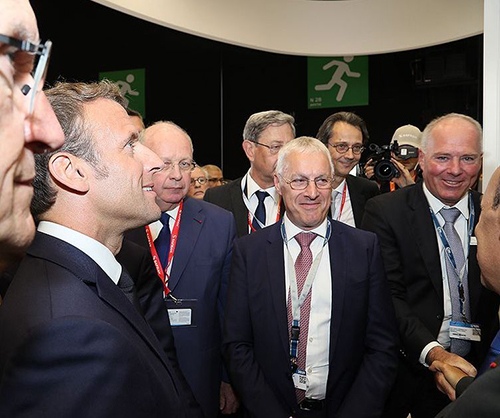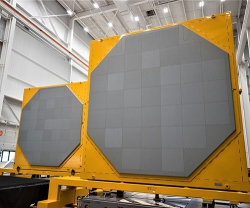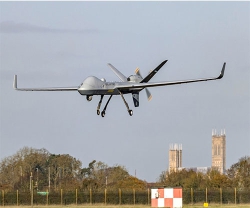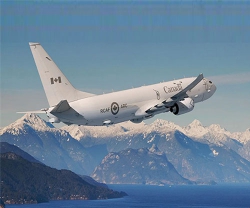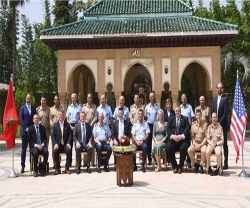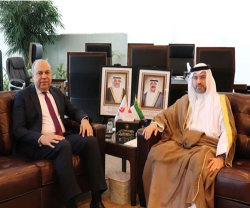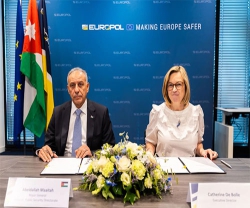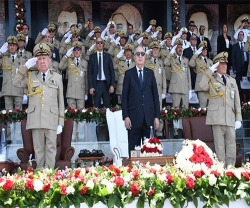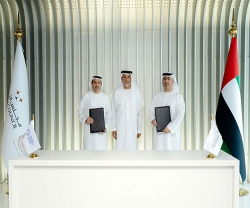This year’s aviation industry gathering in Paris ended with an order intake of more than 1.3 billion US Dollars (about 1.2 billion Euros; according to list price) for MTU Aero Engines.
The orders for Germany’s leading engine manufacturer mainly resulted from orders and Memorandums of Understanding (MoU) for the geared turbofan (GTF) engines of the PW1000G family for short- and medium-range aircraft. They account for around 95% of the volume during the Paris Air Show which took place at Le Bourget from 17-23 June 2019. There was also a commitment for the GEnx long-range engine, in which MTU also has a stake.
MTU’s most recent orders were predominantly systems from Airbus aircraft. The largest single order was placed by JetSMART with engines for 85 A320neo Family aircraft. Engines for a further 142 aircraft in this category were ordered by several undisclosed customers. The Mexican airline Viva Aerobus opted for the GTF for 41 A321neo aircraft. In addition, SMBC Aviation Capital and Aviation Capital Group each ordered 20 aircraft from this family. The engine selections for the A321XLR long-haul version presented at the Paris Air Show are largely still pending. Only the four aircraft for Middle East Airlines already have GTF engines. The commitments from Air Lease for 50, from Nordic Aviation Capital for 20 and from Delta Airlines for 5 A220 aircraft further strengthen MTU's order intake. Through its share in the GEnx program, MTU benefits from the orders for the Boeing 787. Korean Air opted for 30 aircraft of this type.
“Modern and efficient engines determine MTU's future in the commercial engine business. This is demonstrated at the Paris Air Show by the continued success of the geared turbofan family and the GEnx engine. While we are mastering the ramp-up of these programs, we are also working on the long-term technological prospects for sustainable aviation,” said MTU CEO Reiner Winkler, commenting on the order influx.
MTU is simultaneously researching evolutionary approaches that can already be operated with sustainable fuels (eFuels), as well as alternative propulsion concepts such as hybrid-electric flying and fuel cells. The second generation of GTFs still offers significant potential and is set to achieve further significant emission savings in an optimized manner. The new engines are expected to be in the air by the mid-2030s.
“In addition, we are already thinking about civilian engines that could fly after 2050. Because the overall goal is emission-free flying,” Winkler noted. With MTU’s announced participation in the small aircraft Silent Air Taxi, the engine manufacturer is underscoring its commitment to future innovations in aviation.
MTU Aero Engines AG is Germany’s leading engine manufacturer. The company is a technological leader in low-pressure turbines, high-pressure compressors, turbine center frames as well as manufacturing processes and repair techniques. In the commercial OEM business, the company plays a key role in the development, manufacturing and marketing of high-tech components together with international partners.
Some 30% of today’s active aircraft in service worldwide have MTU components on board. In the commercial maintenance sector the company ranks among the top 5 service providers for commercial aircraft engines and industrial gas turbines. The activities are combined under the roof of MTU Maintenance.
In the military arena, MTU Aero Engines is Germany’s industrial lead company for practically all engines operated by the country’s military.
MTU operates a network of locations around the globe; Munich is home to its corporate headquarters. In fiscal 2018, the company had a workforce of some 10,000 employees and posted consolidated sales of approximately 4.6 billion Euros.

